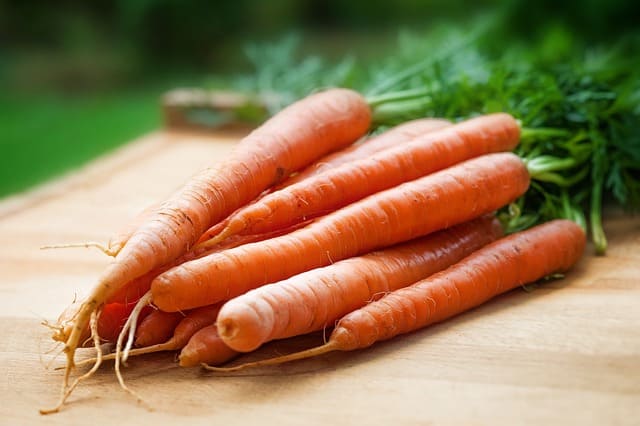The Connection Between Diet and Eye Health: Foods That Boost Your Vision

Most of us grew up hearing that eating carrots would help us see in the dark. While this popular belief has a kernel of truth—carrots are rich in Vitamin A, essential for night vision—it’s just the tip of the iceberg when it comes to the connection between diet and eye health. Our eyes require a variety of nutrients to function optimally, and in this post, we’ll explore beyond carrots to discover other foods that can boost your vision.
Nutrients That Matter
Nutrients are substances that our bodies need to function properly. They provide energy, build and repair body tissues, and regulate body processes. When it comes to eye health, certain nutrients play a vital role in maintaining vision and protecting against eye diseases. Here’s a closer look at four key nutrients that are good for the eyes:
- Vitamin A: Essential for night vision, Vitamin A helps the retina convert light into a signal that can be transmitted to the brain. This vitamin is found in carrots, sweet potatoes, and spinach. A deficiency in Vitamin A can lead to night blindness and other vision problems.
- Omega-3 Fatty Acids: These fatty acids support healthy retinal function and may reduce the risk of dry eyes. Found in fatty fish like salmon and tuna, Omega-3s are essential fats that our bodies can’t produce, so we must obtain them through our diet. They also have anti-inflammatory properties that can benefit overall eye health.
- Vitamin C: A powerful antioxidant, Vitamin C helps protect the eyes against damage from free radicals. It’s found in citrus fruits, strawberries, and bell peppers. Regular intake of Vitamin C can help reduce the risk of cataracts and promote healthy eye tissues.
- Zinc: Zinc plays a vital role in maintaining healthy eyesight by aiding in the metabolism of the retina and helping stabilize cell membranes. It’s found in beef, poultry, and legumes. Ensuring an adequate intake of zinc can support visual development and protect against age-related vision loss.
Foods for Healthy Eyes
Knowing the right nutrients is just the start; incorporating them into your daily diet is where the real benefit comes in. Here’s a closer look at some specific foods rich in eye-boosting nutrients, and how they contribute to maintaining and enhancing your vision:
- Leafy Greens: Kale and spinach are packed with lutein and zeaxanthin, which help reduce the risk of chronic eye diseases like macular degeneration. These nutrients are believed to absorb harmful high-energy light waves like ultraviolet rays. Including leafy greens in your salads or smoothies is a tasty way to protect your eyes.
- Eggs: The yolks of eggs are rich in lutein, zeaxanthin, and zinc, all vital for eye health. These nutrients reduce the risk of cataracts and other age-related eye conditions. Eggs are a versatile food that can be included in various meals, from breakfast to dinner.
- Nuts and Seeds: Think almonds, flaxseed, and chia seeds for Vitamin E, which protects the eyes from oxidative damage. This vitamin works as an antioxidant, combating the damage caused by free radicals. Nuts and seeds can be enjoyed as snacks or added to salads and desserts for a nutritious crunch.
A Balanced Diet for Vision
Eating for eye health goes beyond carrots and involves a balanced diet that incorporates a variety of nutrient-rich foods. Here’s a simple meal plan that can inspire you to create eye-friendly meals throughout the day:
- Breakfast: Start your day with scrambled eggs, rich in lutein and zeaxanthin. Pair them with spinach, a source of Vitamin A, and whole-grain toast for fiber. Add a side of orange slices for a Vitamin C boost. This combination ensures a nutrient-dense start to your day, fueling your body and nourishing your eyes.
- Lunch: For lunch, consider a grilled salmon salad. Salmon is packed with Omega-3 fatty acids, essential for retinal health. Mix in mixed greens like kale and spinach for lutein and zeaxanthin, and sprinkle some almonds for Vitamin E. Add citrus slices for a tangy flavor and extra Vitamin C. This meal is a delightful blend of textures and flavors, all contributing to eye wellness.
- Dinner: Roasted chicken with sweet potatoes and steamed broccoli makes for a satisfying dinner. Chicken provides zinc, while sweet potatoes are rich in Vitamin A. Broccoli adds a crunch and offers both Vitamin C and Vitamin K. Together, these ingredients create a hearty meal that supports overall eye health.
- Snacks and Beverages: Don’t forget about snacks and drinks! Nuts, seeds, and berries can be great snack options. Green tea, rich in antioxidants, can be a soothing beverage choice. These additions ensure that you’re nourishing your eyes even between meals.
Creating a balanced diet for vision doesn’t have to be complicated. By incorporating a variety of these eye-friendly foods into your daily meals, you’re investing in clearer vision and a healthier life. Experiment with different combinations and flavors to find what you enjoy most, and remember, your eyes will thank you for the nourishment!
Your eyes deserve a diverse and nutrient-rich diet. By incorporating these eye-friendly foods into your daily meals, you’re investing in clearer vision and a healthier life. At Compton Eye Associates, we’re here to guide you on your eye care journey. Whether you’re curious about nutrition or have specific concerns about your vision, our team is ready to assist you.
Ready to explore more about your eye health? Schedule an appointment at Compton Eye Associates or call us at 800-936-0036. Together, we’ll keep your eyes healthy and your vision bright!